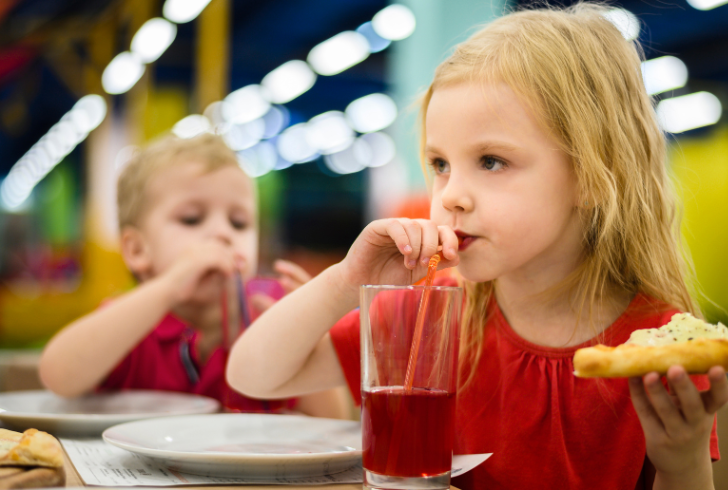For adults, a morning coffee or a mid-afternoon soda might be routine. For children, though, caffeine plays out differently. Many popular “energy” drinks pack heavy doses of caffeine and other stimulants that a smaller, developing body struggles to process, often with stronger and longer-lasting effects.
Recent figures point to a growing concern: ER visits tied to caffeine nearly doubled among middle and high schoolers between 2017 and 2023. Meanwhile, poison control centers noted a 24% jump in calls about energy drink reactions. Those numbers speak for themselves—caffeine isn’t a harmless indulgence for kids.
What Caffeine Does in the Body
Caffeine is a stimulant, found naturally in coffee beans, tea leaves, cacao, guarana, and kola nuts, but it’s also manufactured and added to countless foods, drinks, and even medications. It heightens alertness and speeds up brain activity, but in kids, the effects can be unpredictable.
Children’s bodies are more sensitive to caffeine. Even a moderate dose can trigger:
1. Rapid or irregular heartbeat
2. High blood pressure
3. Anxiety or restlessness
4. Nausea, diarrhea, or stomach upset
5. Difficulty falling asleep or staying asleep
Because caffeine lingers in the system for up to eight hours, the effects can interfere with rest and recovery. Once it wears off, headaches, irritability, and fatigue often follow.
How Caffeine Interferes With Growth

Freepik | Caffeine can disrupt healthy eating habits in children, potentially affecting their growth and development.
Beyond the immediate side effects, caffeine disrupts long-term health habits. Children who fill up on sodas, energy drinks, or processed snacks with hidden caffeine often push aside nutrient-rich foods such as fruits, vegetables, whole grains, and lean proteins. Over time, this can affect healthy growth and development.
Sleep is another major concern. Without enough restorative rest, kids may struggle with memory, mood regulation, digestion, and even immune defense. Lack of sleep also limits the energy they need for school, play, and sports.
Different Sensitivities to Caffeine
Not every child reacts to caffeine the same way. Some may tolerate small amounts, while others experience strong side effects from just a little. Research has shown that boys are more likely than girls to end up in the emergency department due to caffeine-related issues. Children with heart or lung conditions are especially vulnerable because caffeine can speed up breathing and heart rate.
Caffeine also complicates treatment for certain conditions. Kids taking stimulant medications for ADHD, for example, may experience worsened sleep problems or sudden mood shifts when caffeine is added into the mix.
Where Caffeine Hides
Parents often think only of coffee or soda when it comes to caffeine, but it’s tucked into many products that appeal to kids. Common sources include:
1. Coffee and tea drinks - Large café-style coffees can contain up to 490 mg of caffeine, well over the safe daily limit for most adults.
2. Energy drinks - Marketed with flashy labels and fruity flavors, some carry as much caffeine as multiple cups of coffee, along with added stimulants like taurine, guarana, and ginseng.
3. Soft drinks - A 12-ounce can of Diet Coke contains about 46 mg of caffeine, while Mountain Dew packs 54 mg.
4. Chocolate products - A standard dark chocolate bar can carry between 50 and 150 mg. Even ice cream, protein bars, or gum may contain hidden amounts.
5. Medications - Some over-the-counter pain relievers and migraine medicines include caffeine to boost effectiveness.
6. Caffeine pouches - A newer trend, these small packets dissolve in the mouth and deliver up to 200 mg directly into the bloodstream, making them especially risky for teens.
Guiding Children Toward Healthier Choices

Freepik | Guide kids toward healthier drink choices like water, milk, or juice instead of energy drinks.
The American Academy of Pediatrics recommends avoiding caffeine entirely during childhood and adolescence. The safest strategy is keeping caffeinated products out of reach at home and teaching kids about healthier alternatives. Encouraging water, milk, or natural fruit juices instead of energy drinks helps create habits that support their well-being.
Conversations also matter. Talking openly with children about why their bodies need sleep, hydration, and balanced nutrition gives them the tools to make better choices. Reminding them that caffeine is no substitute for rest is key.
When to Seek Medical Help
While most cases of caffeine use result in temporary discomfort, overdoses can be serious. Seek medical attention right away if a child shows signs such as:
1. Racing or irregular heartbeat
2. Fast or labored breathing
3. Uncontrollable shaking
4. Extreme restlessness or hyperactivity
5. Heightened anxiety
Quick care can prevent complications and ensure safety.
Why Awareness Matters
From sodas to flavored snacks, caffeine often sneaks into foods and drinks marketed to kids. For adults it may seem harmless, but for children the effects can interfere with growth and day-to-day health. Knowing where caffeine hides and how it affects kids makes it easier to see why limiting it is the safer choice.
Offering water, milk, or other healthy drinks alongside balanced meals and steady sleep routines gives children a much stronger base for long-term well-being. The earlier these habits are set, the more naturally they carry into adulthood.
